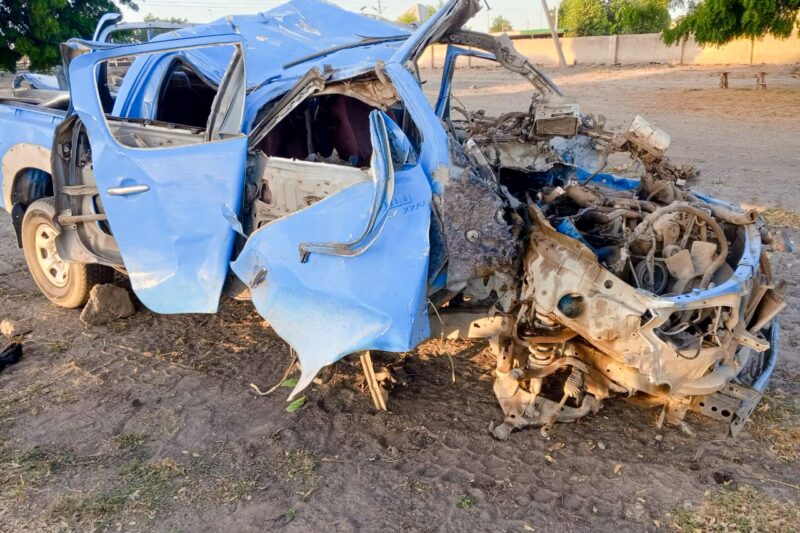Queues of cars, tricycles and other vehicles wind around the block as frustrated residents of Borno State capital Maiduguri wait – sometimes for hours – to get petrol.
And, because of the blackout, most residents desperately need petrol, not only for their vehicles but also to power their generators so that they can keep their businesses going.
Weeks ago, insurgents, thought to be members of the Jamā’at Ahl as-Sunnah lid-Da’way Wa’l-Jihād (JAS), destroyed the power voltage lines connecting Maiduguri to the main Power Holding Company of Nigeria, formerly the National Electric Power Authority. This led to an urgent need for petrol and to the subsequent scarcity.
“We need petrol to keep food on our tables. The scarcity of petrol has affected almost everyone in Maiduguri because the price of fuel has skyrocketed,” a resident, who wished to remain anonymous, said.
Abba Musa, a tricycle operator, told RNI reporter Nana Hadiza that he had no choice but to increase his fares because of the price hike. A fare that would normally cost 50 naira was now 100 naira.
“Getting petrol is a mini-war because it is so scarce.” he said.
A student at the University of Maiduguri said: “We used to pay 50 naira from the post office to the university. Now it costs 100 naira. This is too much for students, especially for those from poor families.”
“What water is to human life is exactly what petroleum represents in people’s daily activities. We urgently need petrol for cars and other vehicles and especially for Keke Napep [tricycle] drivers, which many of us use to get to our businesses. It is having a negative affect on our livelihoods. If we cannot get to work, we can’t work and if we can’t work we cannot put food on the table,” a resident, who asked to remain anonymous, told RNI reporter Amina Abbagana.
The high demand for petrol in the city has led to the long queues at petrol stations, many of which have run out of the liquid gold.
Keke Napep driver Muhammed Zarami said: “We have been struggling to get petrol for more than a week. We usually earn 4,000 to 5,000 naira a day but because of the long queues, we have to wait for more than three hours to get petrol and this has affected our daily earnings.”
Some filling station owners in the city cannot afford to buy petrol at the higher price and others have run out.
Those that still have petrol are experiencing major queues. Residents wait for hours, not even sure there will be petrol available when they get their turn to fill up their vehicles.
Residents have called on the government to bring an end to what they describe as a “worrisome situation”.








